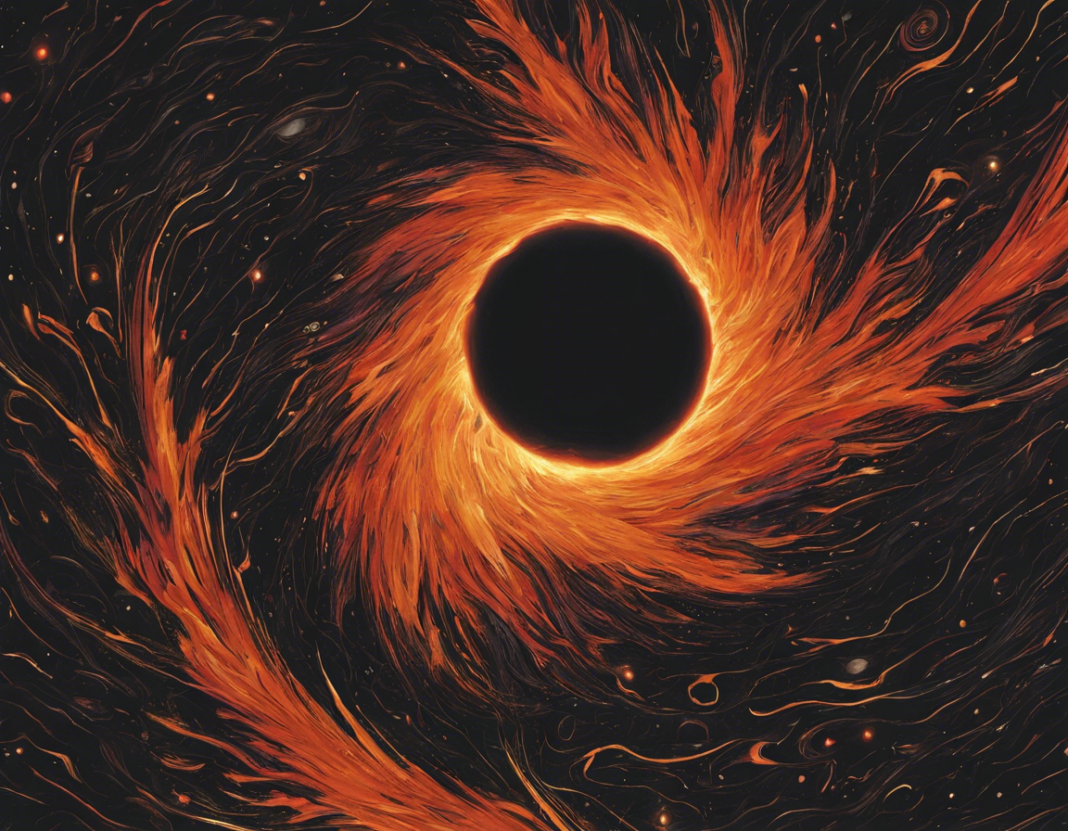Black holes have captivated the scientific community and the public alike for decades with their mysterious and enigmatic nature. Among the different types of black holes that exist in the universe, one of the most intriguing is the Phoenix black hole. This particular type of black hole defies many of the conventional laws of physics and presents unique characteristics that set it apart from its counterparts.
Understanding Black Holes
Before delving into the specifics of a Phoenix black hole, it’s essential to grasp some fundamental concepts about black holes in general. A black hole is a region in space where gravity is so intense that nothing, not even light, can escape its pull. The boundary surrounding a black hole is known as the event horizon, beyond which no information or matter can return.
Black holes are typically formed when a massive star collapses in on itself in a supernova explosion. The core that remains after the explosion collapses under its gravity, forming a black hole. The size of a black hole is determined by its mass, with stellar black holes being comparatively smaller than supermassive black holes that can be found at the centers of galaxies.
Characteristics of a Phoenix Black Hole
A Phoenix black hole, named after the mythical bird that is reborn from its ashes, is a theoretical type of black hole that challenges our understanding of physics. This enigmatic entity is believed to possess the ability to radiate energy and particles rather than simply absorbing everything that crosses its event horizon.
1. Energy Emission
Unlike traditional black holes that are characterized by their insatiable appetite for consuming matter and light, a Phoenix black hole emits energy in the form of radiation. This phenomenon, which goes against the traditional notion of black holes as cosmic vacuums, has led scientists to reconsider the dynamics of these celestial bodies.
2. Rejuvenation Process
The concept of a Phoenix black hole hints at the possibility of a rejuvenation process where the black hole renews itself from within. This process could involve the ejection of mass and energy, thereby sustaining the black hole’s existence over vast time scales.
Theoretical Implications
The existence of Phoenix black holes has profound implications for our understanding of the universe and the laws of physics that govern it. If these theoretical entities were to be discovered and confirmed, it would revolutionize current models of black hole dynamics and the fate of celestial objects.
1. Information Paradox
One of the most significant implications of Phoenix black holes is their potential to address the information paradox. This paradox arises from the conflict between the principles of quantum mechanics and general relativity concerning the conservation of information in black hole evaporation. The ability of Phoenix black holes to emit radiation may offer a new perspective on how information is preserved in these extreme gravitational environments.
2. Cosmological Evolution
Studying Phoenix black holes could provide insights into the cosmological evolution of the universe. By understanding how these unique black holes interact with their surroundings and evolve over time, researchers may uncover new mechanisms that drive the growth and development of galaxies and cosmic structures.
Challenges and Future Research
While the concept of Phoenix black holes opens up exciting possibilities for astrophysics and cosmology, numerous challenges remain in confirming their existence and understanding their properties. Observing and studying these mysterious entities pose significant technical and theoretical hurdles that will require innovative approaches and advanced technologies.
1. Detection Methods
Current observational techniques are primarily designed to detect and study traditional black holes based on their gravitational effects on surrounding matter. Identifying the distinct signatures of Phoenix black holes, particularly their energy emission patterns, presents a formidable challenge that researchers are actively working to overcome.
2. Theoretical Framework
Developing a robust theoretical framework to describe the formation, behavior, and observational characteristics of Phoenix black holes is essential for guiding future research efforts. Incorporating the unique properties of these theoretical entities into existing models of black hole physics will be crucial for advancing our understanding of the universe.
Frequently Asked Questions (FAQs)
1. What distinguishes a Phoenix black hole from other types of black holes?
A Phoenix black hole is theorized to emit energy and particles, in contrast to traditional black holes that only absorb matter and light.
2. How do Phoenix black holes relate to the concept of information paradox?
The ability of Phoenix black holes to radiate energy may offer insights into resolving the conflict between quantum mechanics and general relativity regarding the conservation of information in black hole evaporation.
3. Can Phoenix black holes provide clues about the evolution of galaxies and cosmic structures?
Studying the behavior and interactions of Phoenix black holes could offer valuable information about the cosmological evolution of the universe and the mechanisms driving the formation of galaxies.
4. What are the challenges in detecting Phoenix black holes?
Identifying Phoenix black holes requires new observational methods capable of detecting their unique energy emission patterns, which differ from those of traditional black holes.
5. How might the discovery of Phoenix black holes impact our current understanding of black hole physics?
Confirming the existence of Phoenix black holes would revolutionize existing models of black hole dynamics and potentially reshape our understanding of the fundamental laws of physics governing the universe.
In conclusion, the mysteries surrounding Phoenix black holes represent an exciting frontier in astrophysics and theoretical physics. By exploring the theoretical implications and challenges associated with these enigmatic entities, researchers are pushing the boundaries of our understanding of the universe and the profound forces that shape it. As advancements in technology and observational techniques continue to progress, the unveiling of Phoenix black holes may hold the key to unlocking some of the universe’s most profound secrets.
